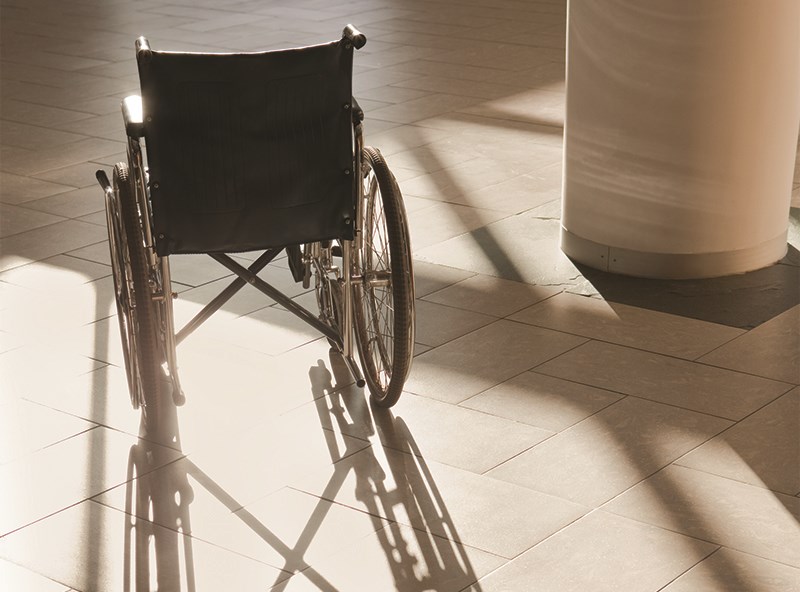Troy Shantz & George Mathewson
Fewer than 10 people in Sarnia-Lambton have chosen to end their life through medically assisted dying since it became legal two and a half years ago.
Compared to the provincial average, that’s a remarkably low number.
Almost one per cent of deaths in Ontario now involve medical assistance, according to statistics from the Office of the Chief Coroner of Ontario. And the number is increasing steadily.
But in Sarnia-Lambton, only about three of the 1,200 residents who die each year are opting for an assisted death, a rate of roughly 0.0025%
Two factors may account for that, officials say — superior palliative care and deep-seated religious beliefs.
“Where good quality of palliative care exists, 95% of people will choose palliative care over MAID (medical assistance in dying),” said Marilyn Gladu, MP for Sarnia-Lambton.

“A lot of people want to be at home, a lot of people want to be around their families. I think it’s really important that they have that choice. Palliative care allows them to be comfortable until the end.”
Assisted dying provides a quick end, while palliative care treats pain and other symptoms over a person’s final weeks or months. It also offers patients and their families professional support and guidance.
Though many residents don’t realize it, Sarnia-Lambton’s palliative care system is regarded as one of the best in Canada. The system, created by committed health care professionals and backed by hundreds of volunteers and fundraisers, provides 24-hour access to palliative specialists at home and at 20 dedicated beds at Bluewater Health and St. Joseph’s Hospice.
Gladu said when she realized what Sarnians take for granted isn’t widely available elsewhere, she introduced a private members bill — the Framework on Palliative Care in Canada Act.
The legislation, which received Royal Assent in 2017, requires Canada’s health minister to develop and implement a framework to give all citizens access to palliative care through hospitals, home care, long-term care facilities and residential hospices.
After the Supreme Court of Canada struck down the ban on medical assistance in dying, Parliament passed Bill C-14 in 2016. It allows doctors and nurse practitioners to legally end the lives of terminally ill patients.
Candidates must be 18, obtain two doctor assessments and wait 10 days after the request before the procedure is administered.
Few doctors in the Sarnia area offer the service, according to Bluewater Health, which confirmed fewer than 10 medically assisted deaths have occurred since 2016. The actual number may even be lower but rounding is required due to data privacy concerns.
By comparison, more than 580 people began palliative treatment at the hospital and hospice in 2018, as well an unknown number at home.
“For most cases, if you keep people comfortable and give them meaning at the end of their life, they don’t want MAID. That’s why our numbers are so low,” said Dr. Glen Maddison, one of five palliative care physicians who work as a team in Sarnia-Lambton.
“It would be very rare for one of our patients to die in pain.”
The local palliative system grew out of the pioneering work started by the late Dr. Linda Bowring more than 30 years ago.
Today, the strategy includes emotional and psychological support for both the patient and family, said Dr. Allison Crombeen, a palliative specialist.

“Palliative care, at the very core, is patient centred. A big piece of what we promote when we’re seeing people is that we’re going to meet them where they’re at.”
Gladu said she believes religion is another reason for the low rate of medically assisted death.
Some 67% of Sarnia-Lambton residents identify as Christian, while just 28% say they have no religious affiliation, according to census data.
“In their view, ‘Thou shall not kill.’ They believe medical assistance in dying is wrong,” said Gladu, herself a Christian.
Dr. Crombeen said religion can be a factor in choosing palliative care, and end-of-life patients do have access to a variety of spiritual practitioners.
But the individualized care plan can be entirely secular as well, she said.
“We work with the patient to determine what their belief system is and how we can support them with their choices based on their belief system,” she said.
“We tailor it to them.”
